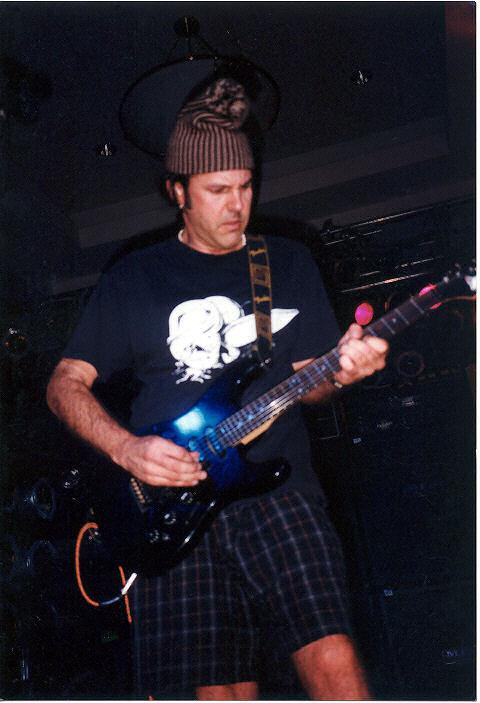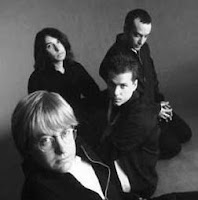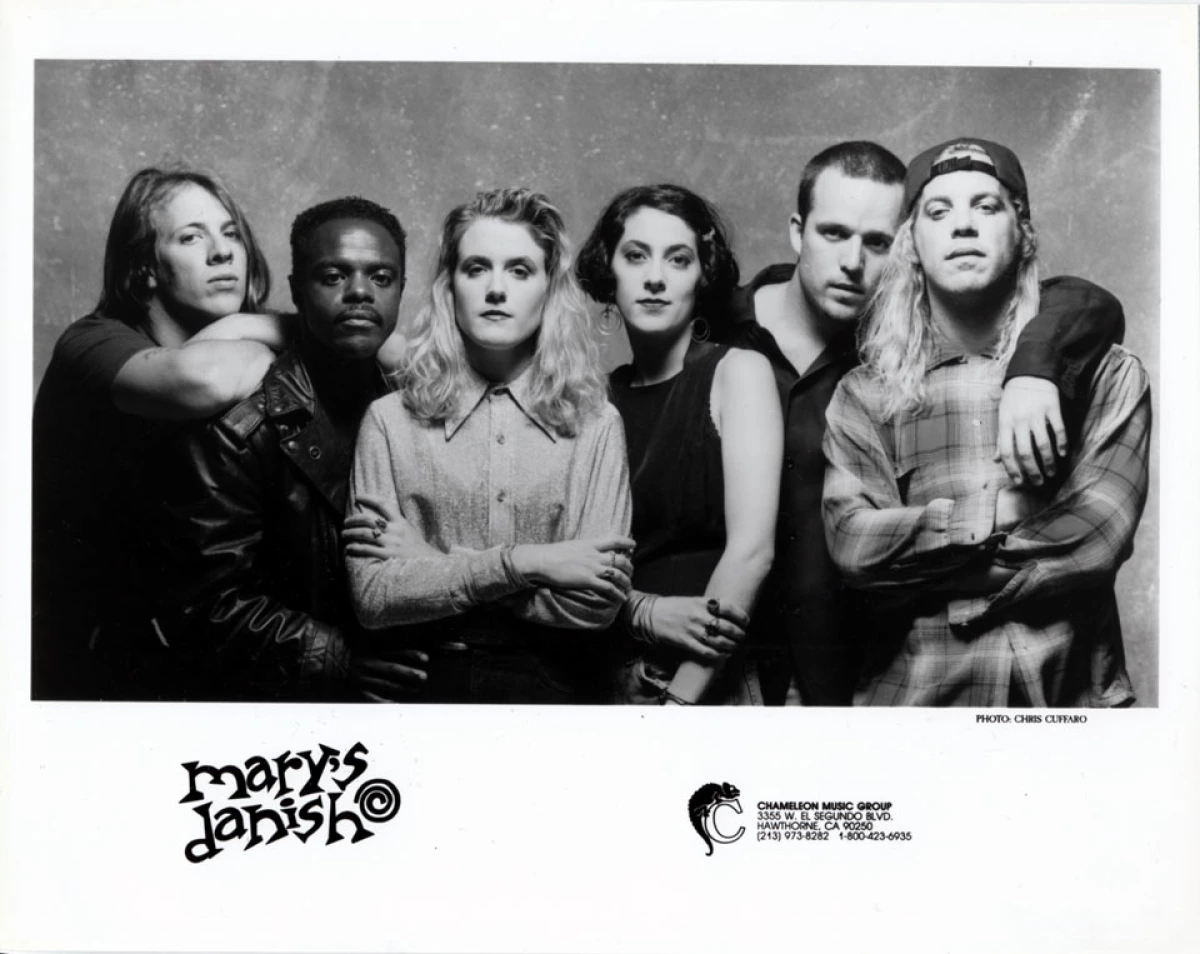Mystical Machine Gun: A Conversation with Paul Winter-Hart of Kula Shaker
Discography:
K (Columbia, 1996)
Peasants, Pigs and Astronauts (Columbia, 1999)
Strangefolk (Cooking Vinyl, 2008)
Pilgrims
Progress (StrangeF.O.L.K., 2010)
K
2.0 (StrangeF.O.L.K., 2016)
Popular Tracks: Tattva, Hey Dude, Hush, Mystical Machine Gun, Shower Your Love
While they were never super huge here in the states, Kula Shaker definitely made a name for themselves. Son of actress Hayley Mills, frontman Crispian Mills set out to blend Britpop with psychedelia and for the most part succeeded. After fatigue set in with just about everything British related, the band went away only to come back amidst the wave of nostalgia for everything ‘90s. Drummer Paul Winter-Hart took time away from his life in January of 2019 to answer some nostalgic questions about the band's career.
Pete Crigler: When did you become interested in playing music?
Paul Winter-Hart: I think we all started to play rock and roll in our teens. Before that Crispian had played a bit of sax and Alonza piano. I think we’ll all saw “Tommy” and “The Wall” in our formative years and realised that bands could be inspire art as well as be inspired.
Pete: Tell me about some of your early bands.
Paul: My first band, in Glastonbury at 14 was called Slainte Mhath, Celtic for cheers. Crispian said of it ‘great band name, unspellable and unpronounceable!’
Pete: How did Kula Shaker come together and what was the scene like at the time?
Paul: Kula Shaker formed slowly from the ashes of another band. We were called the Kays and gigged around extensively and lived in 2 flats and a council house together in north London. We gatecrashed Glastonbury festival, busking in an army tent. And played a set in the Hare Krishna tent. It was a start, and we knew we had something magical, man! There was no scene, to speak of…Acid jazz had happened and not happened, we knew some of the 60s fringe around that. We knew there was an underground festival scene with bands like the Ozric Tentacles and we liked that if we were high enough
Pete: What was it like signing with Columbia?
Paul: Columbia was a surprise; labels had been flirting with us for a long time and it seemed like it wouldn’t happen. Then you’re suddenly on same label as Dylan, Miles Davis and Jeff Buckley. It was great!
Pete: Tell me a bit about how songs like Tattva and Hey Dude came about?
Paul:
Tattva came from a jam then Crisp put this great vocal on it. It seemed
effortless. Hey Dude was Crispian’s, I don’t know if they liked it at the time.
They hate it now. We always had the groovy thing going on from the Monkees to
the Meters. And we like an intro and a well-structured song...
Pete: What was the recording of K like?
Paul: Recording K was intense! We had been living together for 3 years at that point and we’re starting to sound good live, however our studio chops didn’t match our sonic ambitions, it didn’t sound how we wanted, we re-recorded most of it then used a combination of old and new versions. Crispian and I didn’t like how it sounded but it sounded great on a little radio.
Pete: How was the band’s experience trying to break into the American market and do you feel it was successful?
Paul: The experience of trying to break the US? Well we knew that you were meant to tour and tour and tour. We did a bit. We were just delighted to play legendary music cities like Memphis, Nawlins, NY, L.A., Nashville, San Francisco, Austin. We toured again in 2016 it was amazing!
Pete: How did the cover of Hush come about?
Paul: Hush was just a tune we played. I think our manager suggested we record it as a b side. We cut it at Sound City. It was like a regular studio in the valley. But Rumours and Nevermind were done there so we were excited by that!
Pete: What was the process like recording Peasants, Pigs?
Paul: The recording of Peasants was much more extended and expensive. We started in L.A. again, at Sunset Sound with Sylvia Massey and Rick Rubin and George Drakoulias. The reality set in and we went back to London and started recording with Bob Ezrin on Dave Gilmour’s boat on the Thames where reality took a rain check again. Bob’s approach was meticulous and musical, it took forever. We hung out with Terry Gilliam, I swam in the Thames, we made a video for 250k. Shit had gone nuts.
Pete: What caused the band’s seemingly sudden split in ‘99?
Paul: The whole dynamic in the band had changed. Looking back, it’s not surprising we split.
Pete: What was everyone up to after the split and did you guys stay in touch?
Paul: After parting I played a bit with Alonza, we played together on European tour with Joseph Arthur and separately with Aqualung. Jay our Hammond player went off with Oasis for years. Crispian formed bands and toured. We stayed in touch, about as much as we do now, sporadically.
Pete: What led to the reunion?
Paul: I saw Crispian in town, I think he came to a gig with Simon Pegg, or maybe I met him after, we planned to go and see old friends Reef play, but it got late so I was cycling along with Crispian on my handlebars, catching up. Then we got together with Alonza to record a track for the School of Braj album which Crispian was involved with. we recorded it at Martin Barre’s castle in Devon. I was in awe as he played guitar in Tull and he invited us to dinner!
Pete: What was the process like recording Strange Folk?
Paul: Strangefolk was really tricky to record. We started with Tchad Blake at Real World, Peter Gabriel’s place near Bath. But we quickly ran out of budget. We set up in my cousins’ bungalow near King Alfred’s tower in Somerset. We ended up mixing with Dave Brinkworth at Crispians Flat in Bath so the whole thing was a West Country project.
Pete: What has fans reaction been?
Paul: Our fans are great. I think they know the band is something we throw ourselves into, like a love affair. We are very fortunate to be able to tour worldwide. Playing live has always been something we loved and that connection to fans has strengthened over the years.
Pete: What’s next for the band?
Paul: Fuck knows man! We put a record out in, 2016 and that went great,
Crispian directed his 3rd video clip for us for Indefinite Sun. We toured
UK/Europe/Asia /US and sounded the best we ever have, we were relaxed and
taking a holiday from our families! Since then we haven’t seen much of each
other. I recorded an album of sitar jams with Alonza & Olivier from
Lompret, which the other guys have added to. Crispian wrote & directed a
film. Henry’s teaching a bit. I’m living on a boat, gardening &
practicing...We’ll see...
Pete: What do you think of the impact of ‘90s alternative rock?
Paul: Well for me the impact has been slow burning. Jeff Buckley Grace had a huge impact here. In the 00s it put all the choirboys at the front of bands. I couldn’t dig Soundgarden at the time but I saw them twice before Chris Cornell passed and they were one of the greatest live bands ever, up there with King’s X. Hip people have by now left the building. The Pumpkins I wandered out of at the Astoria in town then bought Gish & Siamese Dream the next day and went noooooo how could I leave that gig. Elliott Smith? Unbelievable. You want some cool stuff? Sorry wrong guy! Stereolab, The La’s, Sneaker Pimps I got into listening to subsequently...Britpop? Wasn’t a thing, to me, to us, just a vague phrase...
Pete: What do you hope your legacy will be?
Paul: Jeez, maybe you should ask the frontman that. Well we were a straight-ish edge band back then and we’ve become more sensible with age so I guess that’s more popular these days, I think the records still stand up and the live show, which has always paid homage to the greats has enough personality and vibe for us to be recognized in the timeline of genuine song-based bands.






Comments
Post a Comment